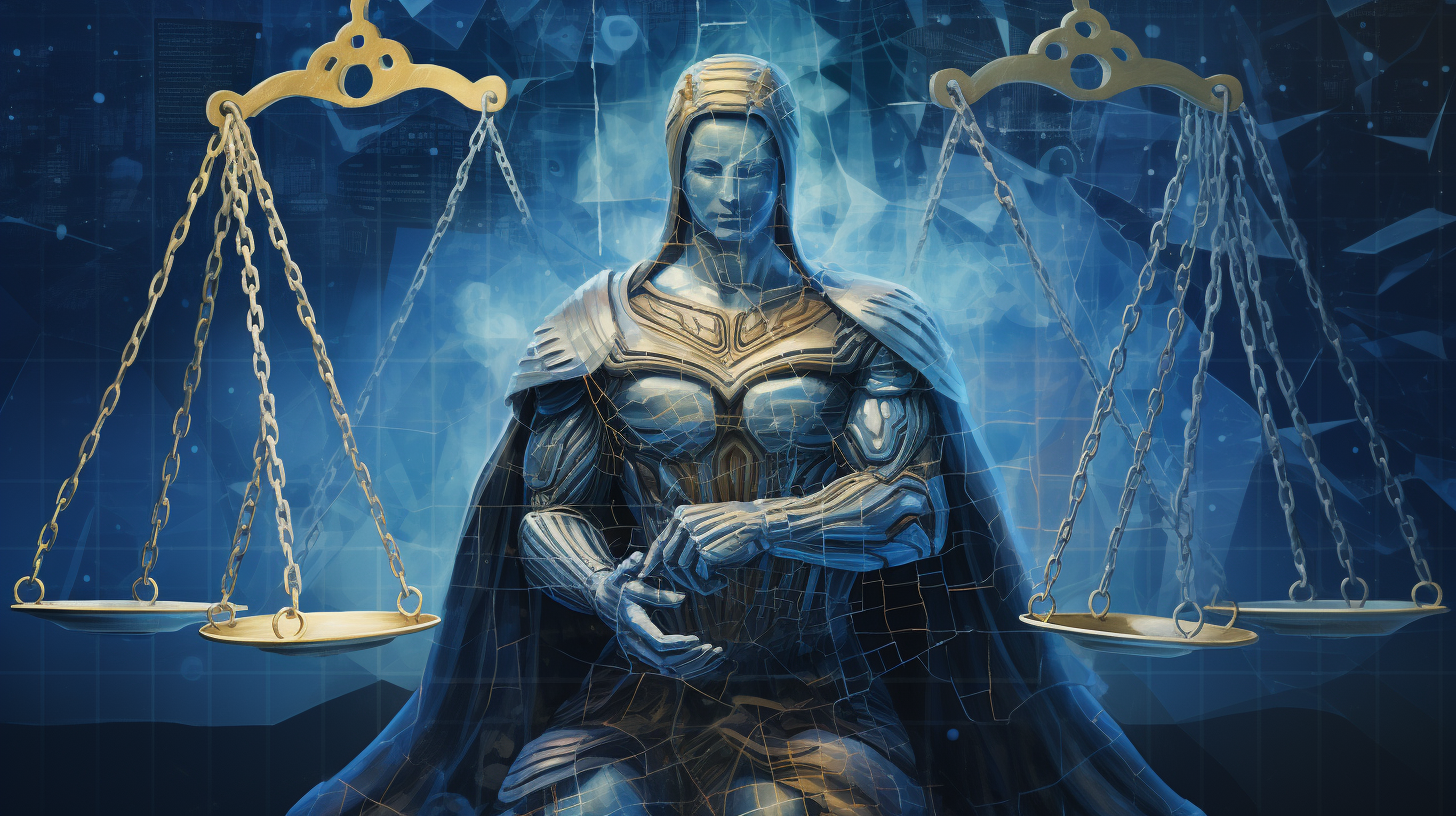In an era where cryptocurrency has become king, the traditional pillars of society—like the legal system—are being radically transformed. Smart contracts, self-executing contractual states with the terms directly written into code, are now at the forefront of this revolution, leading us towards a realm of ‘Virtual Justice’. But what does this mean for the average crypto citizen? How do smart contracts mediate not just transfer of assets, but validation of agreements, and disputes that may arise from them?
Enter Smart Contracts
Smart contracts, birthed from blockchain technology, offer a kind of automated impartiality. Imagine a world where a contract enforces itself without any need for a middleman—that’s the promise of this technology. Parties agree to the terms, the contract is coded into the blockchain, and upon meeting the conditions, it executes. It’s the digital handshake that cannot be unshaken.
The Decentralization of Disputes
Centralized legal institutions have historically held the responsibility to resolve legal disputes, but smart contracts are shifting this paradigm. Decentralized Autonomous Organizations (DAOs) are emerging as judicial chambers of the digital world. They’re like juries formed from stakeholders, who can vote on outcomes of contract disputes, echoing the democratic roots of justice.
The Case of Crypto Cities
In crypto-cities, where everyday transactions are dealt in digital currency, governance and legalities have also adopted the blockchain mantle. Smart contracts serve as the new notaries, authenticating transactions and legacies without a whiff of doubt as their authenticity is embedded into an immutable ledger.
Smart Contracts vs. Traditional Justice
But how do smart contracts fare against traditional legal processes? Cases drag for months to years in courtrooms, while a smart contract could resolve issues instantaneously. However, the question of complexity in legal matters arises. Can a smart contract handle the nuances of human disagreement, where not everything can be translated into if-then-else statements? It’s an ongoing debate as we venture further into a judicial system interwoven with code.
Challenges on the Horizon
One cannot ignore the challenges ahead. Can these contracts recognize when they are unjust due to flawed code or unforeseen circumstances? Will stakeholders in a DAO always vote impartially, free from the tides of influence and power? The integrity of these new systems remains a concern and the safeguard is a hybrid model incorporating human oversight.
Conclusion: A Future of Automated Justice?
We stand on the brink of a colossal shift in how justice is served and disputes are settled. Smart contracts offer an appealing vision of efficiency and decentralization. However, as our previous discussion on ‘Next-Gen Justice’ highlights, the balance between automation and human oversight is critical. Not all is set in code, and thus the evolution of virtual justice is a captivating journey we are only just beginning to map out.
A smart contract cannot buy you a drink when you’ve had a bad day in court, but it might just make sure you never have to see the inside of one again.
